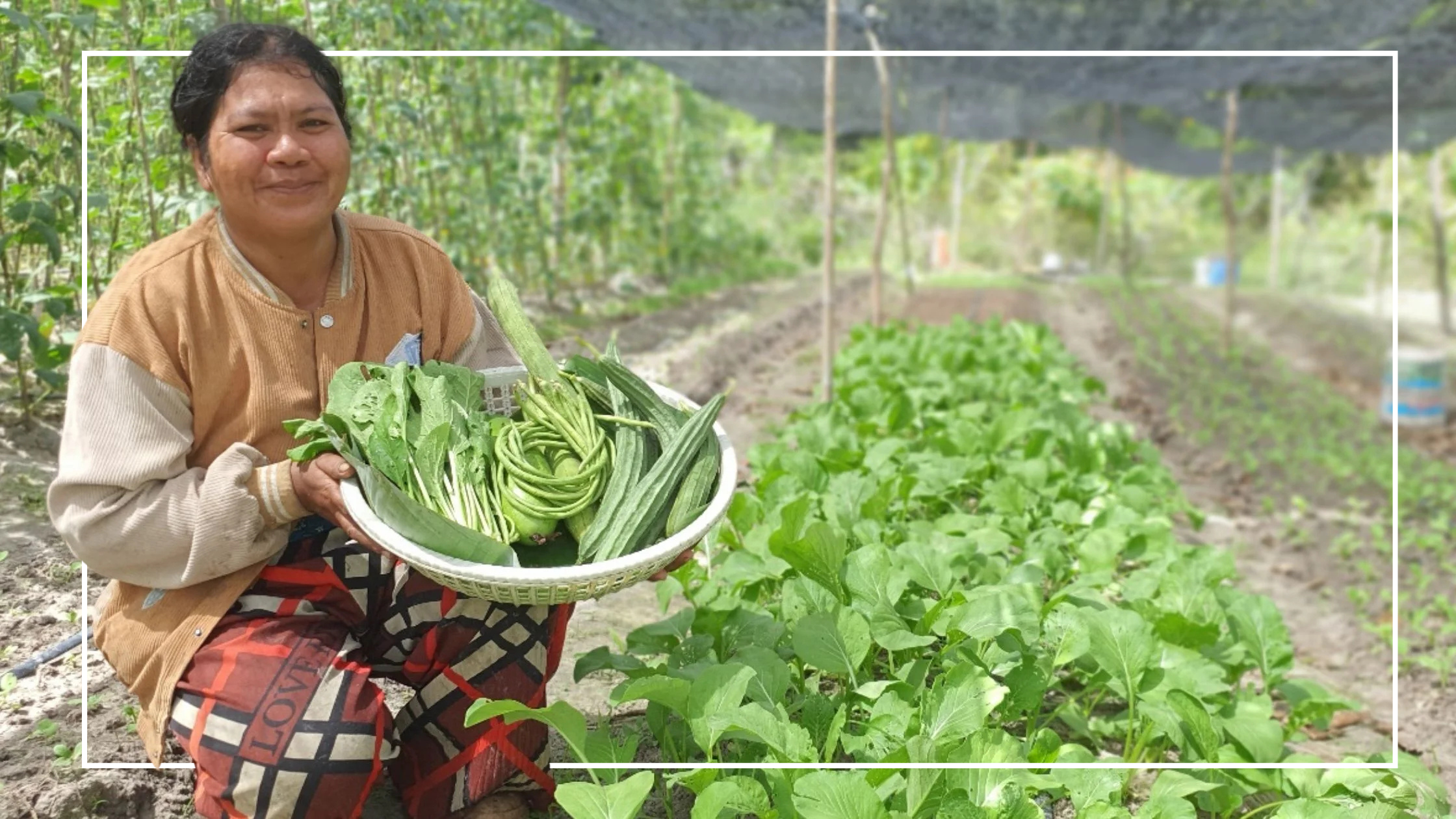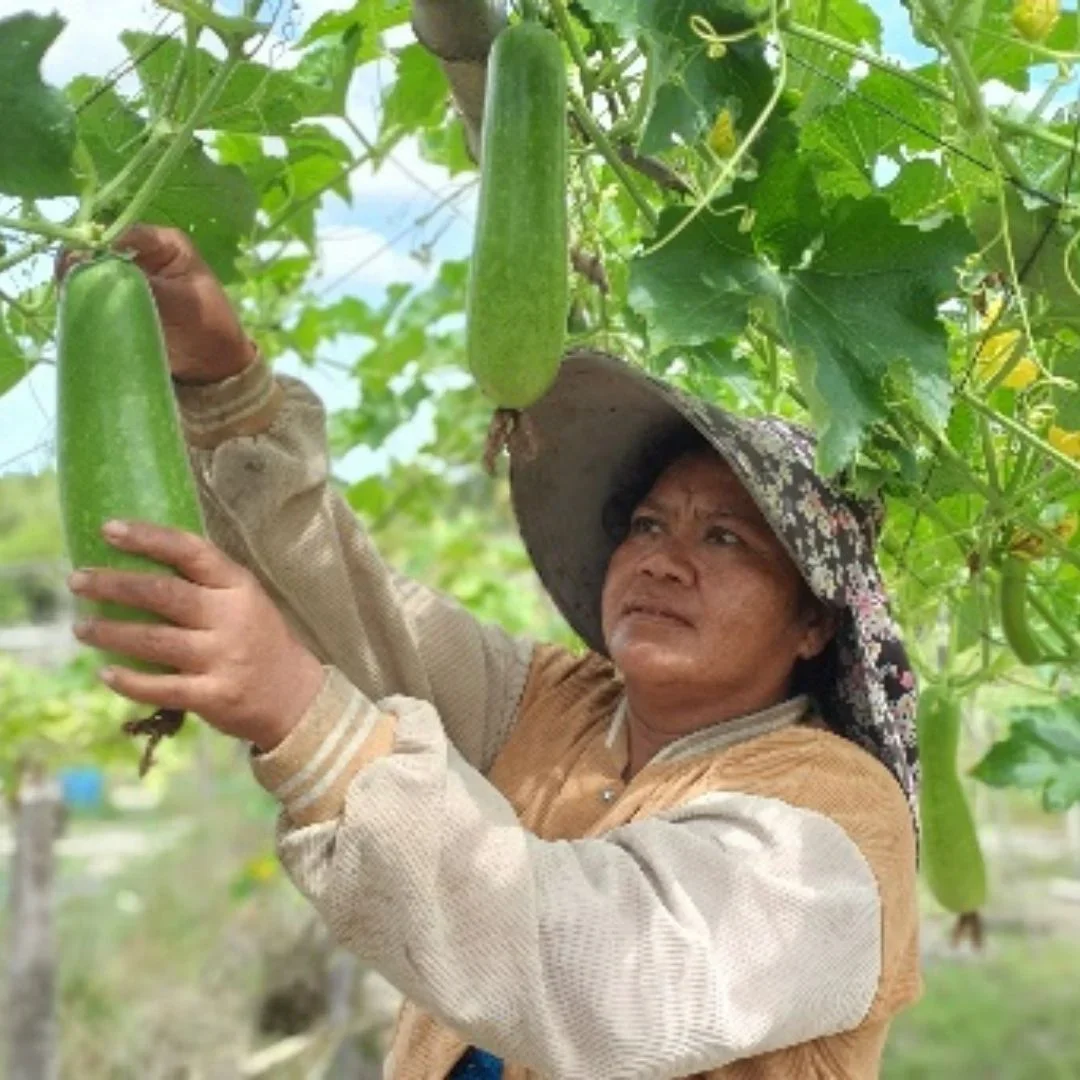
Harvesting Hope: Women Today and Women in the Bible
Empowered through World Hope programs, women in hard places are harvesting hope. They stand on the shoulders of women over the centuries, including women in the Bible, like Ruth, who in the midst of difficult circumstances, chose to persevere.
A Harvest of Hope in Cambodia
An indigenous Bunong community located near the border of Vietnam, has experienced food insecurity, natural disasters, and disrupted farming traditions. These conditions have increased high-risk migration over the years, making children more vulnerable to exploitation, and families at risk of losing their land; a precious commodity. In 2023, World Hope began working alongside the community and local church, to support them in producing their own food. The church established a small farm but faced barriers to their success including limited resources, pest management issues, and a lack of market connections.
World Hope provided training in seedling production, pest control, and linked them to markets for their produce. The community adopted a sustainable income model: 30% for the church, 30% for community activities, and 40% for reinvestment into the farm.

Today, the farm produces a diverse range of vegetables. Their produce is highly sought after in local markets, and the farm has even joined an export program for shallots, successfully planting its second crop this year. Plans for a greenhouse and solar irrigation are underway to continue improving the farm’s sustainability and production capacity.
In addition, the skills learned at the community farm are now being applied to personal gardens. There is improved food security across the village, risky migration has decreased, and children are staying in school. By reclaiming their agricultural roots, the community is creating a sustainable future for the next generation.
A Harvest of Hope in Judah
The story of Ruth is one born out of tragedy and loss. In the beginning chapter of the book Naomi, the family matriarch, now a widow, and her two daughters-in-law, also widows, start out on a journey for Judah, Naomi’s home country.
On the way, she urges her daughters-in-law to return to their homes. While one quickly agrees, Ruth refuses to leave her mother-in-law and chooses instead to move to a foreign land stating, “your people will be my people, and your God will be my God.”
When they arrive back in Judah it is the beginning of the barley harvest. Ruth offers to glean in the fields, picking up grain left behind during the harvest, so they would not starve. Through Ruth’s faithfulness and God’s providence and care, she discovers she has been gleaning in the fields of a family relative, one who was able to redeem Naomi’s husband’s land and become Ruth’s husband. Her faithfulness and perseverance became the channel through which she would experience renewed hope and a future.
Those who sow with tears
will reap with songs of joy.
Those who go out weeping,
carrying seed to sow,
will return with songs of joy,
carrying sheaves with them.
Hope for Tomorrow
Women around the world living in hard places are loyal, committed, and full of hope that one day things can be different, can be better for their children, families, friends and neighbours. Like Ruth, they persevere, sacrifice, and serve for the benefit of those they love.
Even in the poorest places around the world, hardworking people can improve the conditions of their families lives with help and support.
That’s why we work to lay the groundwork for healthy, private sector collaborations at the grassroots and global trading levels. We support the start-up of businesses that can help people out of poverty while providing a service that everyone needs—like growing food, producing power, and improving access to clean water.
Give to support programs that develop communities’ capacity for improved livelihoods.
